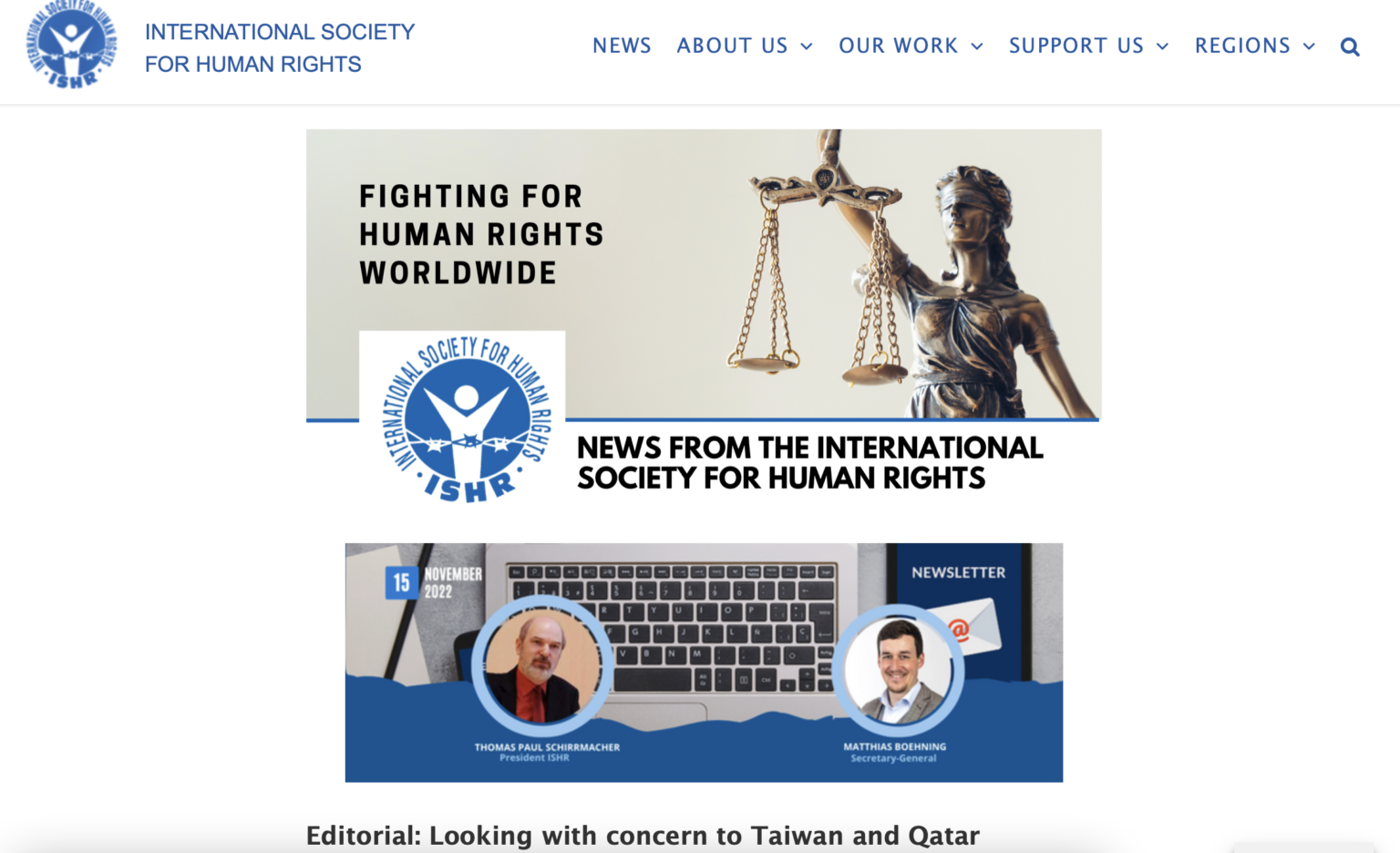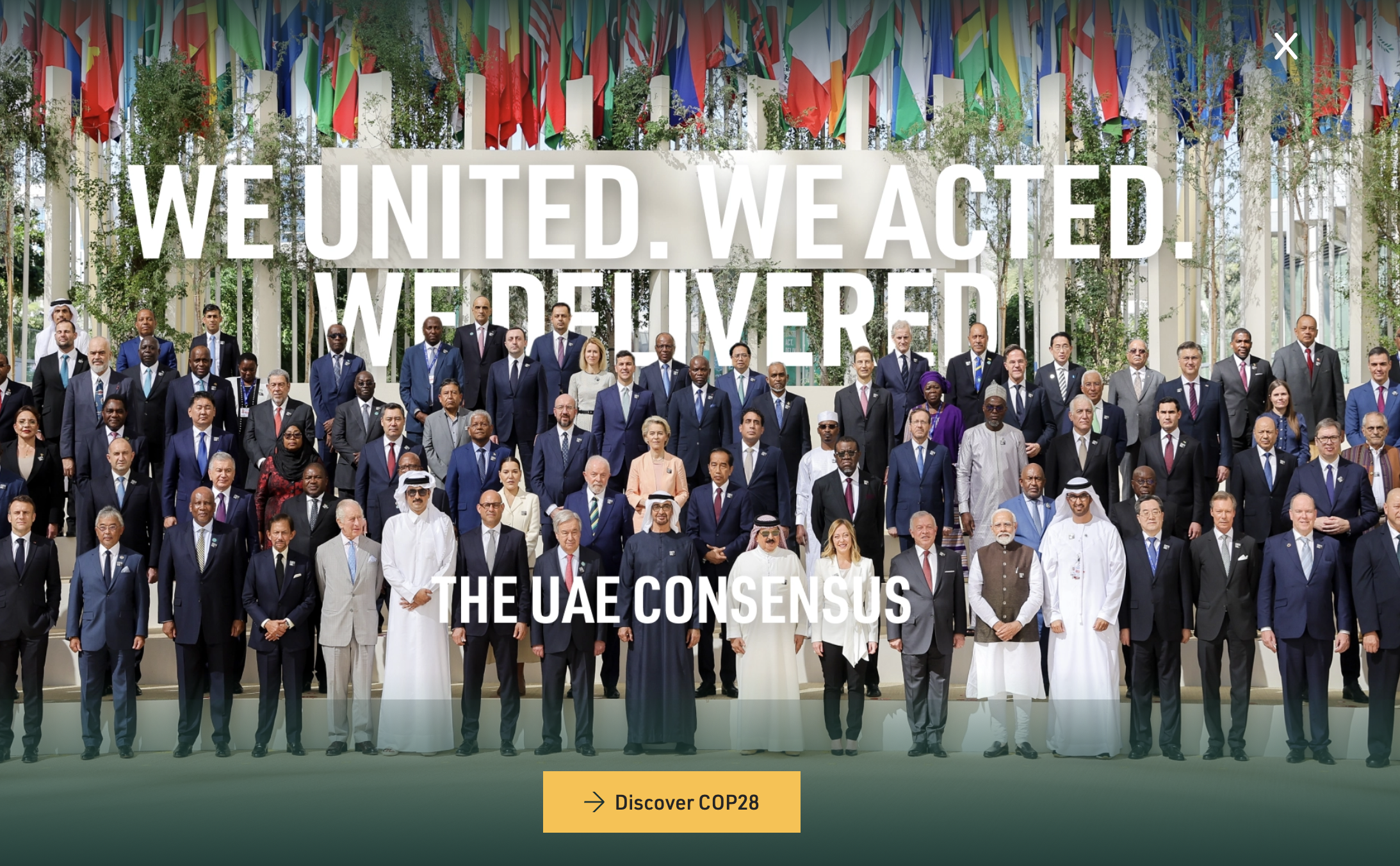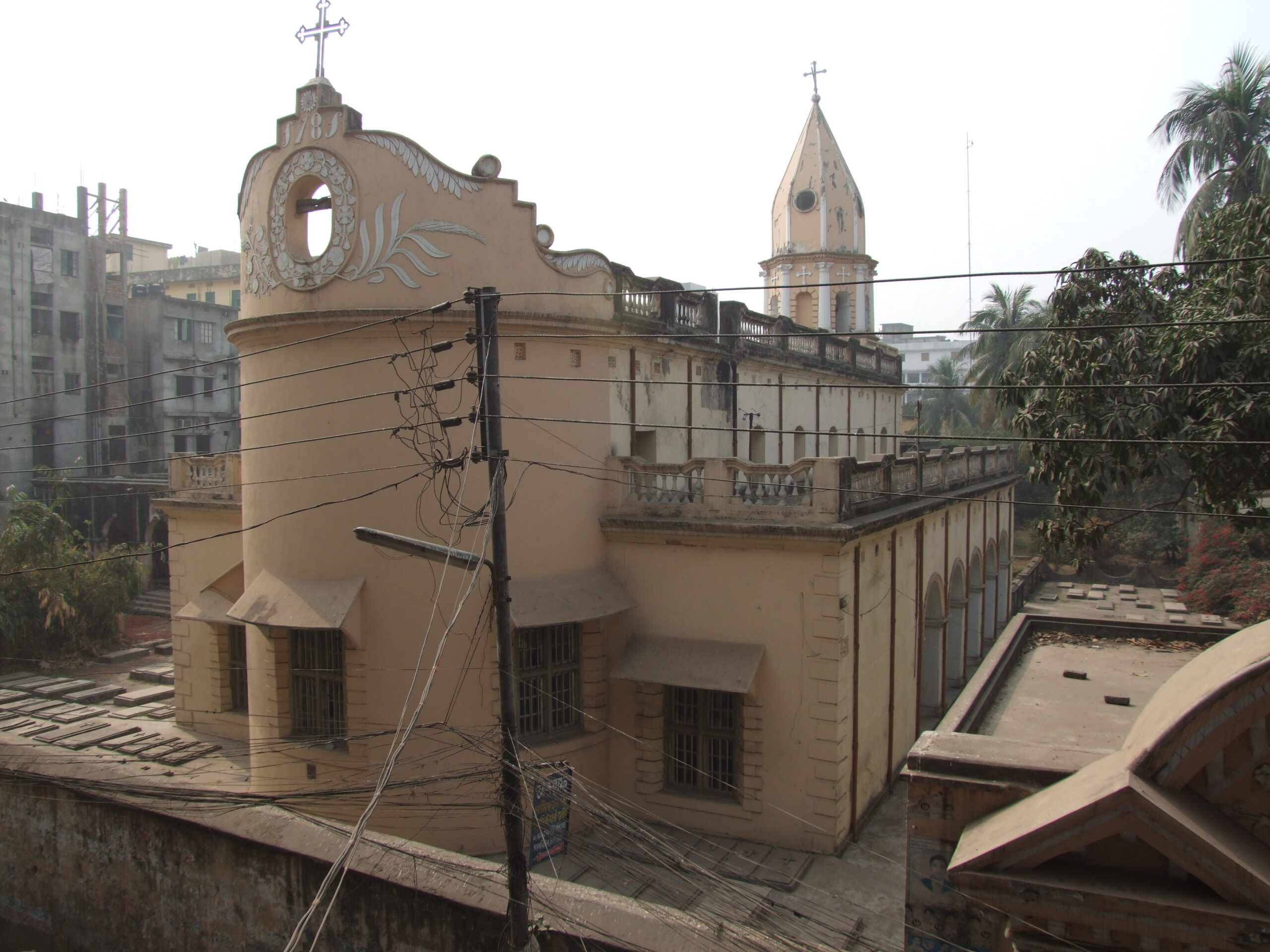Editorial: Looking with concern to Taiwan and Qatar
While the war in Ukraine continues to keep the world on tenterhooks, although the tide seems to be slowly turning, two other issues with direct human rights relevance come into focus for us this November: first, the growing tensions between China and Taiwan and, rather inevitably, human rights conditions in the host country of one of the biggest sporting events of the year: the Men’s Soccer World Cup in Qatar.
Many members, partners and friends of the ISHR believe it is very likely that Taiwan will be the next major human rights disaster triggered by China meaning that the currently already intolerable situation will deteriorate further. Not least because ISHR has a long tradition of supporting human rights defenders in Taiwan, including those highlighting problems in the country. We are watching current developments with great attention and growing concern, and are doing our best to support our friends and partners who are concerned with Taiwan.
The Men’s Soccer World Cup, which will be held in Qatar starting on Sunday, November 20, brings the small state on the northeastern coast of the Arabian Peninsula to the attention of the world. Being one of the biggest sporting events of 2022, the World Cup has long been of concern to soccer fans and human rights activists alike, as the human rights situation in the small country’s absolute monarchy is catastrophic. Qatar has been ruled as a hereditary monarchy by the House of Thani since Mohammed bin Thani signed a treaty recognizing the country’s status with the British in 1868.
The heated discussions, which range from gentle diplomatic influence to a full-blown “World Cup boycott,” once again highlight the dilemma the international community faces between economic interests and human rights values. Against the backdrop of the war in Ukraine, sanctions against Russia, the global energy crisis and skyrocketing energy prices, the small Gulf state is on its way to becoming one of the most influential players in the global energy market. This is due to the fact that the country has some of the largest reserves of natural gas, which is seen in many ways, especially in Europe, as an alternative to oil and a transitional energy source during the shift towards renewable energy, but also as a short-term alternative to Russian natural gas. In this context, many worryingly point out that Europe is on the verge of again becoming dependent on a questionable regime and is taking quick steps out of current necessities that would later be regretted.
At the same time, sudden moral appeals from the soccer world regarding labor standards, human rights, and corruption in Qatar seem somewhat bizarre when one keeps in mind that Qatar is only the most recent example and current scene in the long history of FIFA’s questionable machinations. Little Qatar, which is trying to strengthen its geostrategic position with its global investment strategy and clever use of emotional bonding moments like a World Cup, has found an enabler in FIFA that doesn’t ask too many questions. It is important and right to criticize Qatar for its failure to respect human rights standards and principles. But it is just as important to criticize the “system of soccer” or similar the “system of Olympics”. A system that in itself has numerous elements that are questionable in terms of human rights (the global transfer market or rampant corruption at all levels are just two examples) and from which Western democracies joyfully profit year after year far less critically. Soccer is an exciting, unifying sport, but unfortunately also one of the dirtiest businesses in the world.
Stay connected with us in supporting human rights defenders worldwide.Editorial of ISHR Newsletter November 2022 by Schirrmacher & Boehning
https://ishr.org/ishr-newsletter-november-2022/





